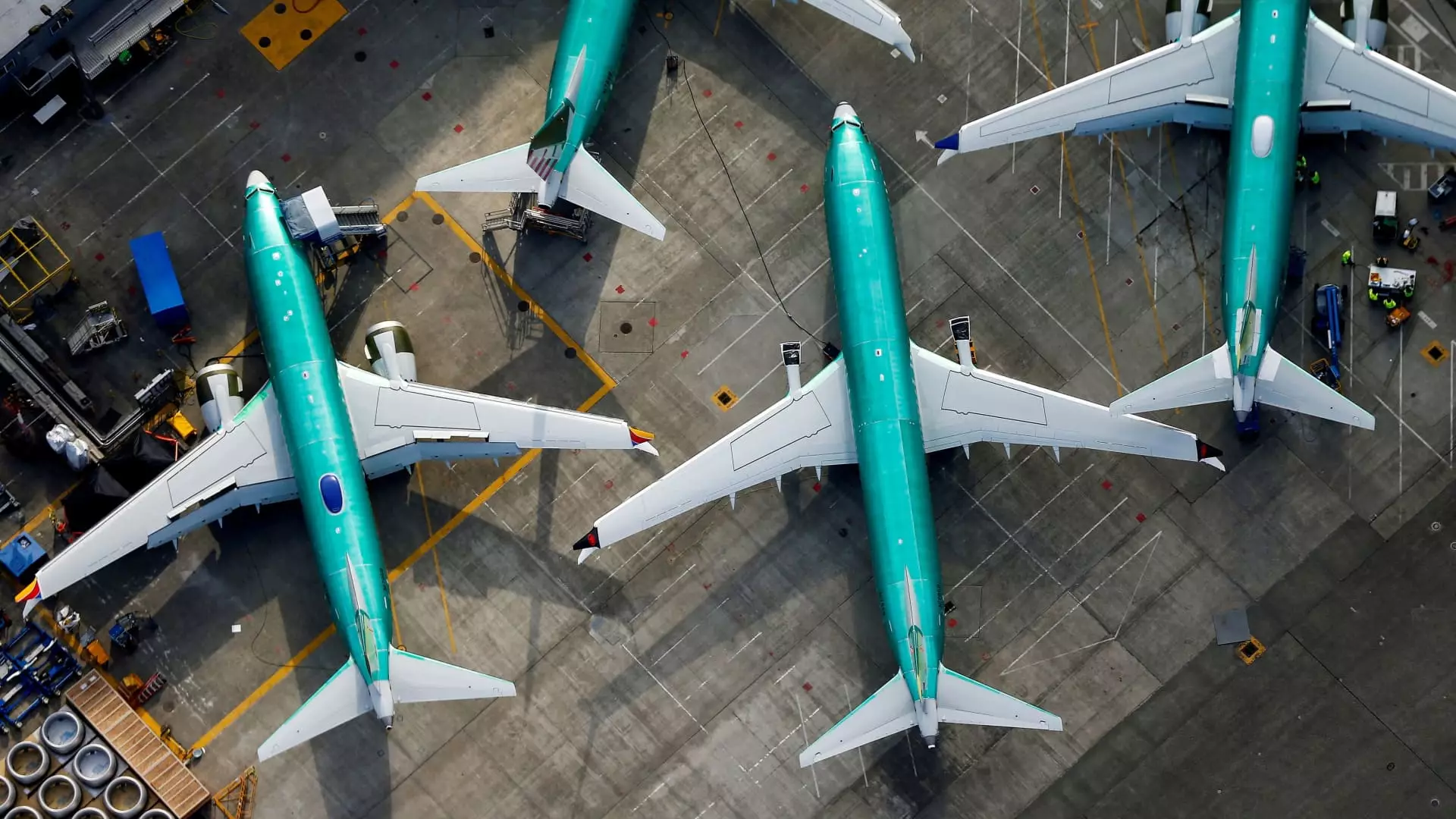Boeing’s recent crisis surrounding its Max planes has caused a ripple effect on some of its biggest customers, prompting them to reconsider their growth strategies for the foreseeable future. The airline CEOs have expressed concerns about the ongoing quality control issues, slow production increases, and delays in the certification of new aircraft. Southwest Airlines, known for exclusively operating Boeing 737s, has adjusted its 2024 capacity forecast due to a decrease in expected Boeing deliveries this year. The airline now anticipates receiving 46 Boeing 737 Max planes instead of the initially planned 79.
Southwest Airlines CEO Bob Jordan emphasized the need for Boeing to improve as a company in order for the deliveries to align with expectations. Alaska Airlines also acknowledged uncertainty in its 2024 capacity estimates, primarily attributed to the delays in aircraft deliveries caused by increased regulatory scrutiny on Boeing’s operations. This intensified scrutiny by the Federal Aviation Administration and the Department of Justice has added a layer of complexity to the situation, affecting airline growth plans.
United Airlines CEO Scott Kirby announced at a JPMorgan conference that the carrier has requested Boeing to halt the production of Max 10 planes, which are yet to be certified by the FAA, and focus on producing more Max 9s instead. Kirby highlighted the unpredictability surrounding the certification timeline of the Max 10, leading United to plan its fleet without relying on this particular aircraft model. The decision to pause pilot hiring due to delayed Boeing plane arrivals further underscores the impact of Boeing’s ongoing crisis on airline operations.
The latest crisis faced by Boeing was triggered by an incident where a door panel detached midair from a Max 9 plane during an Alaska Airlines flight in January. Subsequent investigations revealed that the door panel bolts were not correctly attached when the planes left Boeing’s factory in Washington state. This safety lapse has raised serious concerns among the airline industry regarding the overall quality control standards upheld by Boeing in its manufacturing processes.
In response to the escalating crisis, Boeing has pledged to enhance its quality control measures and ensure compliance with regulatory requirements. The company has temporarily halted planned production increases following an audit that identified non-compliance issues in its manufacturing processes. Boeing’s CEO, Dave Calhoun, and other leaders have committed to addressing these quality control lapses through focused initiatives and increased oversight.
Despite the challenges posed by the ongoing crisis, Boeing remains dedicated to restoring confidence among its customers and stakeholders. The company is actively engaged in implementing corrective measures to strengthen its production system and deliver high-quality aircraft that meet stringent regulatory standards. Moving forward, Boeing is focused on working closely with its customers to address concerns and ensure a smooth transition towards resolving the current crisis. The airline industry, on the other hand, is cautiously monitoring the situation and making strategic adjustments to adapt to the changing landscape influenced by Boeing’s challenges.

Leave a Reply